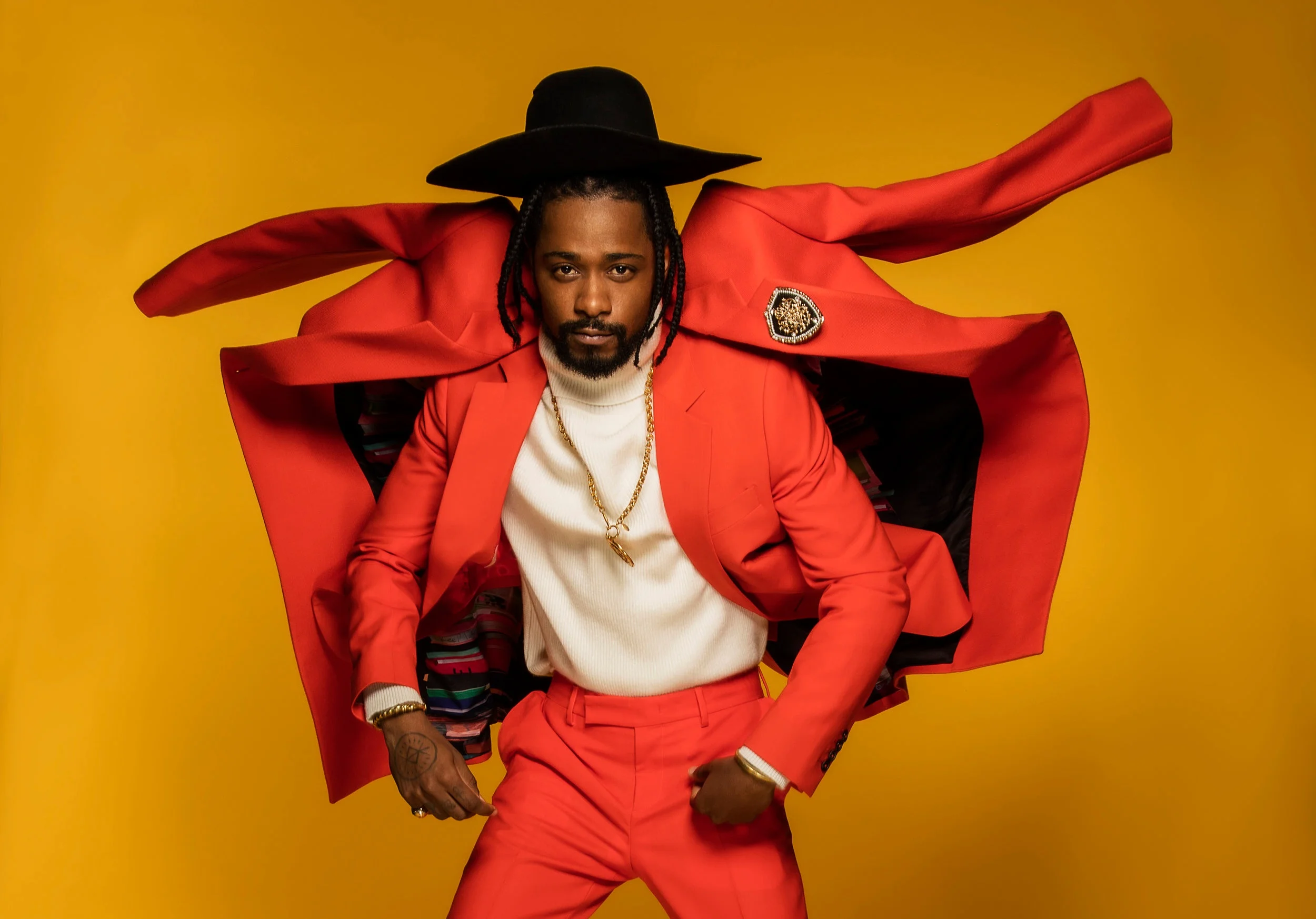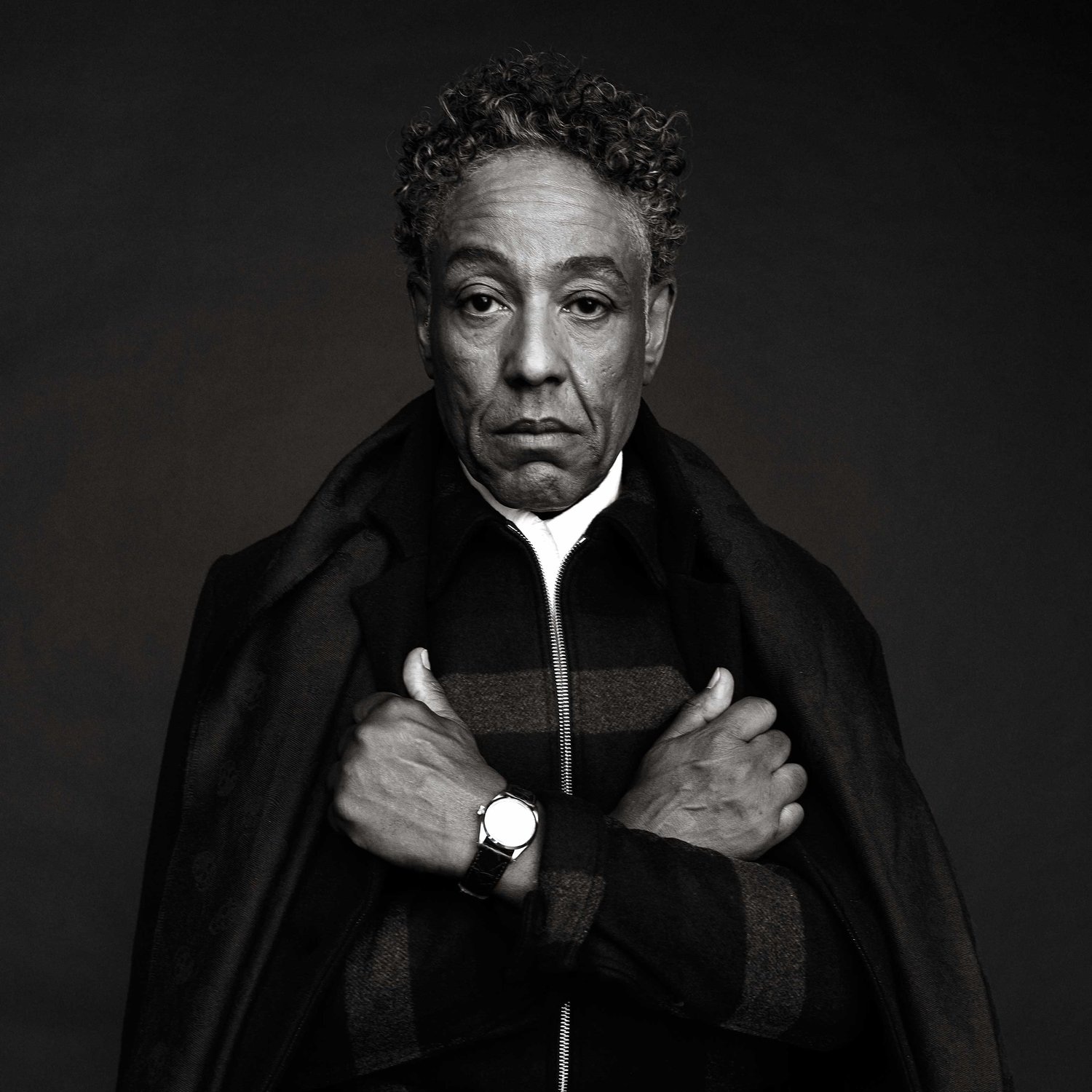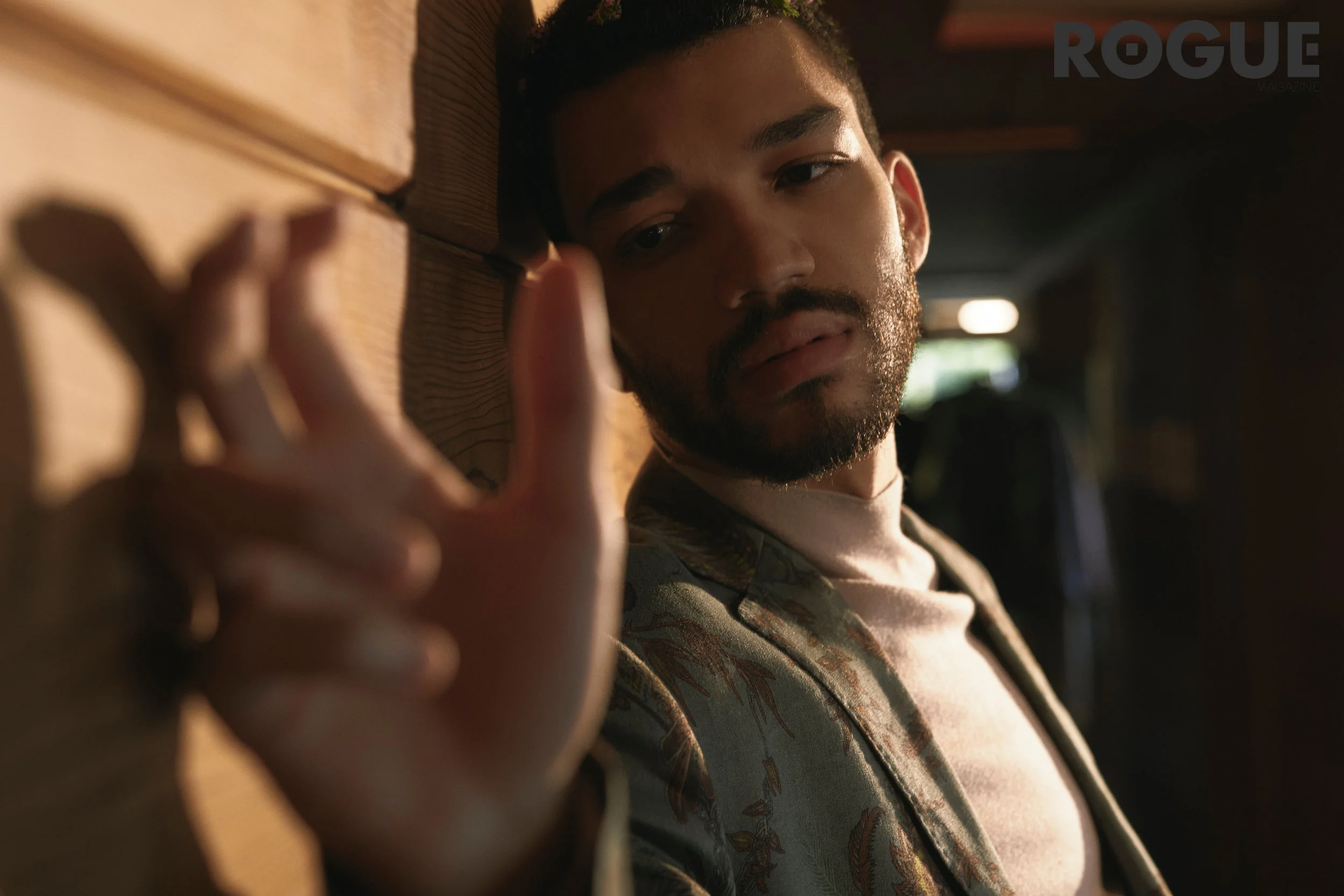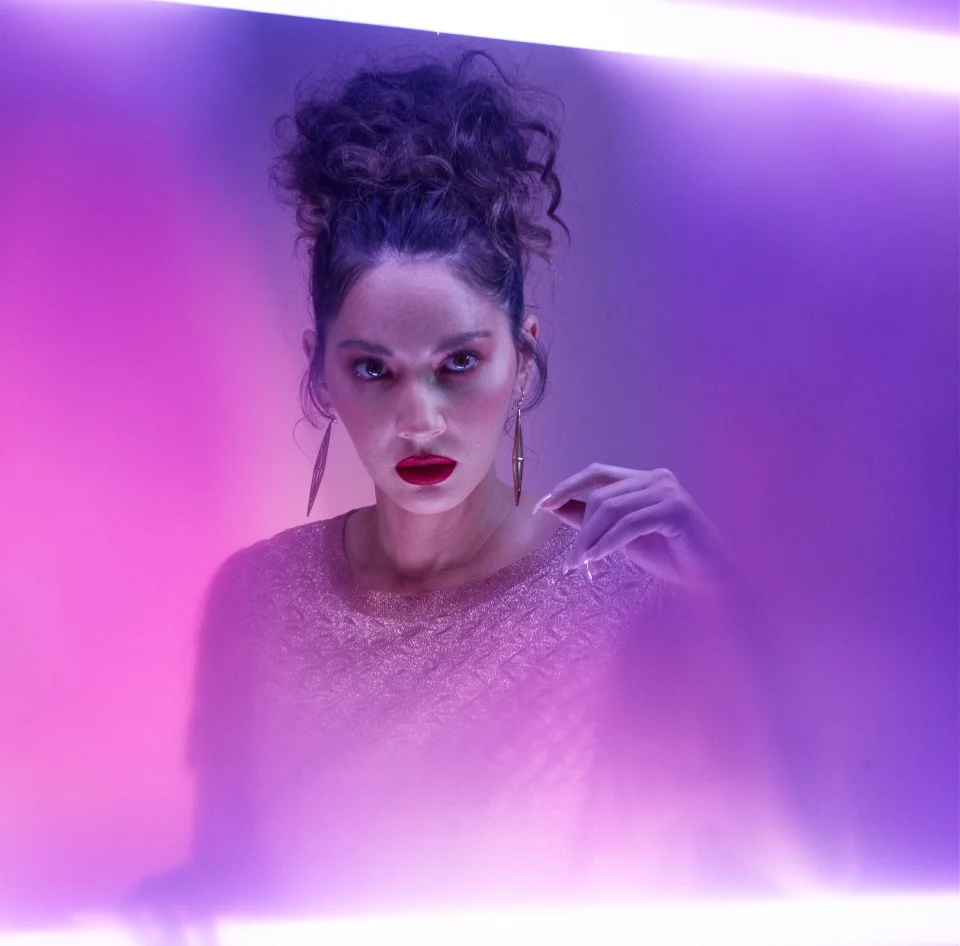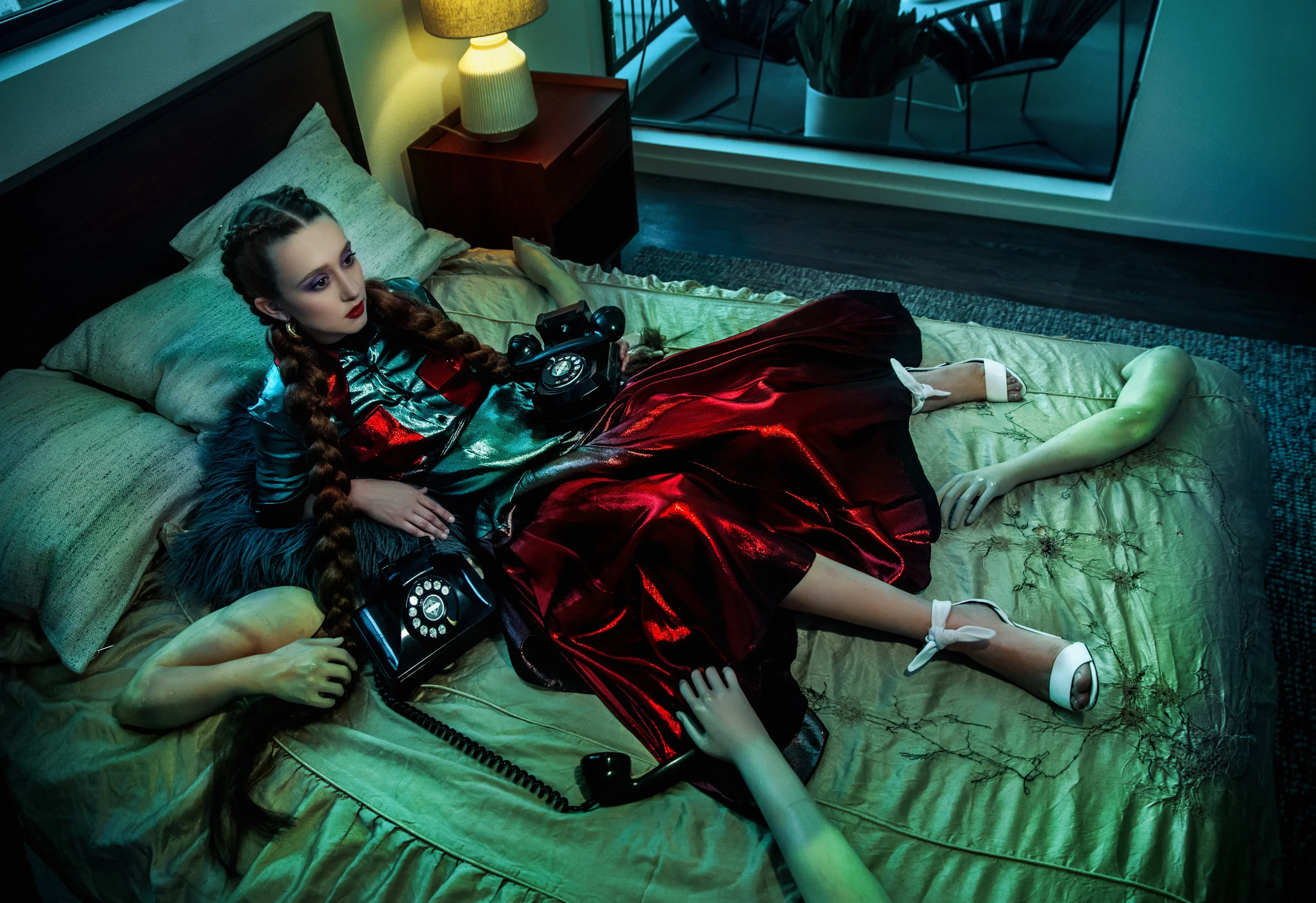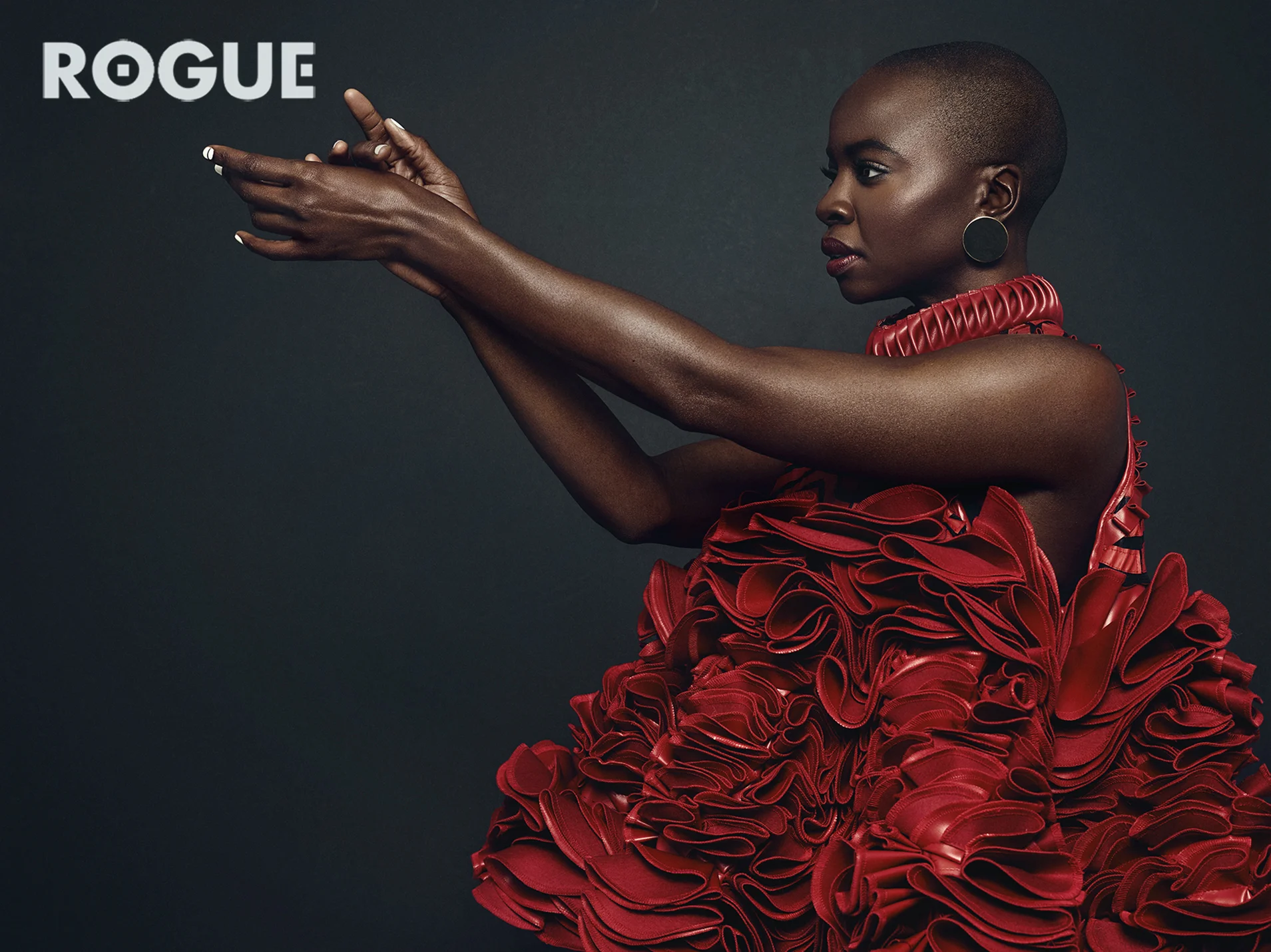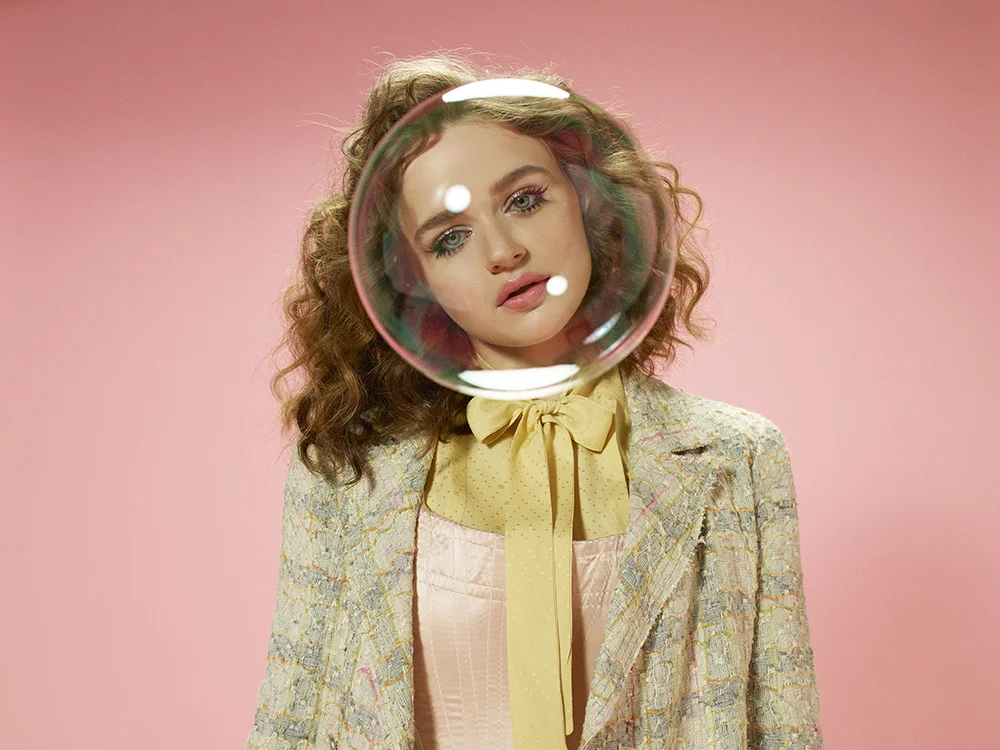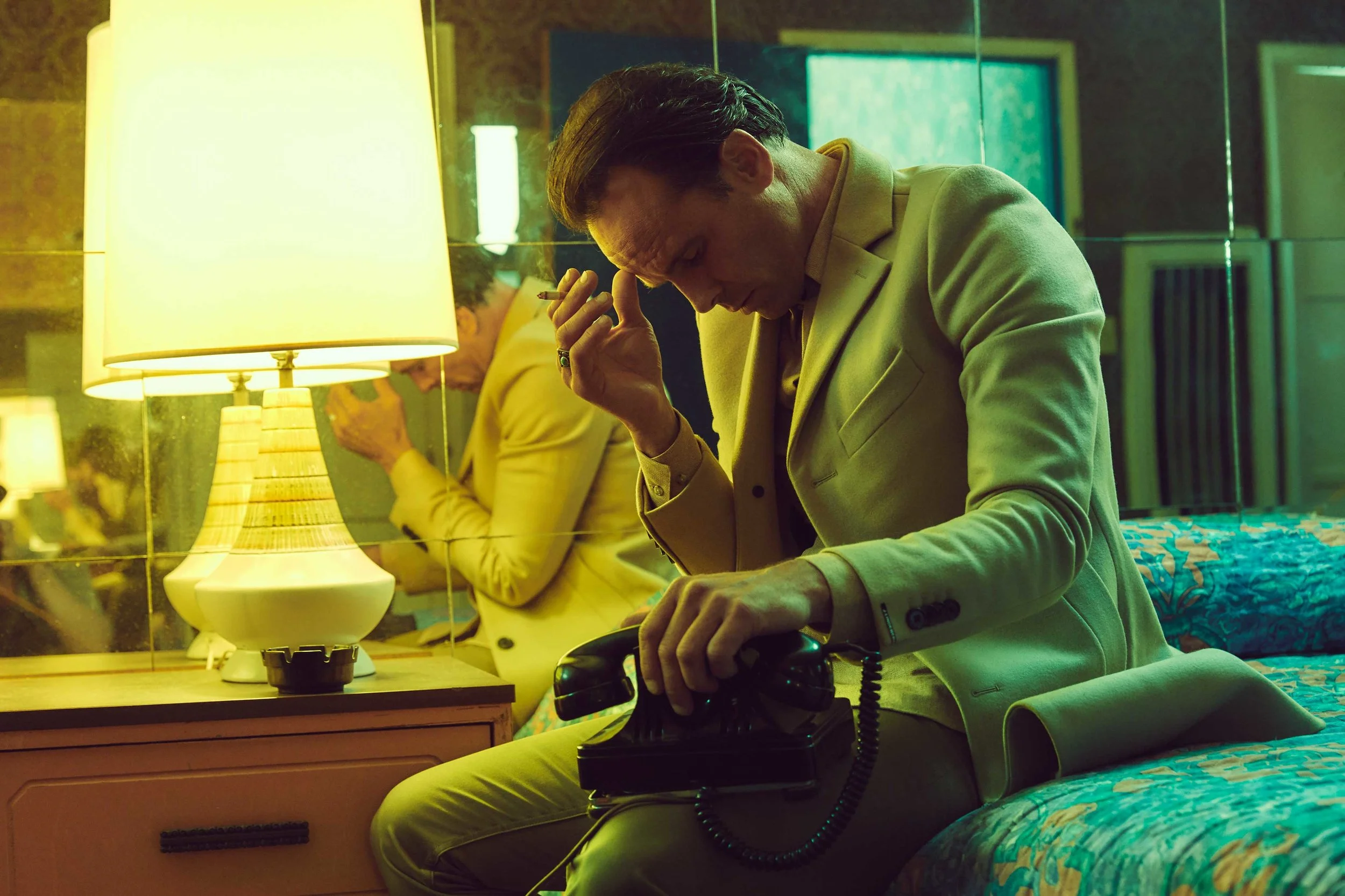David Dastmalchian
It seems as if David Dasmalchian doesn't know how to start small. He got his big-screen debut alongside the goddamn Batman in The Dark Knight and will continue his work in the comic book realm soon in Marvel's upcoming Ant-Man. His latest is the indie film Animals, in which he also served as writer and subsequently received Special Jury Recognition for Courage in Storytelling at SXSW. The story centers on Jude and Bobby, a couple living out of their car and having to come face-to-face with the realities of their relationship and heroin addiction. In the year since its festival premiere, Animals has screened in cinemas across America—a heavy feat for a small film. We caught up with David to chat his history on and off the stage, the writing process, and coming to terms with writing a film rooted in your personal history.
Give us a little bit of your background. Where did you grow up, go to school, etc.?
I am a midwest kid. I grew up in the heartland, if you will, in Kansas, [the] land of outlaws I guess. I grew up in a suburb of Kansas City. I was the youngest of four kids [so] I watched my siblings do all the cool different things that they did. One of my sisters was involved in theater when she was in high school. I just loved the theater and film at a very young age. I went and saw the Muppet movie when I was a baby basically at the local cinema with my friend and his mom. It's what I wanted to do: be up there, doing that, [but] I was a kid. I didn't entertain that possibility as a reality even though I think I've always been a pretty big dreamer.
I always dreamed pretty crazy dreams [but] I still didn't fit the reality of pursuing a life in film. It just seemed like such a pipedream and then I had some teachers, two in particular in high school, who were very encouraging of me and the idea of picking a practical approach at pursuing a career [as] an actor. I was planning to play football in college and go study English at whatever school would give me a scholarship to play football and instead I auditioned for this amazing theater program in Chicago at the DePaul University Theater School. I got in, I got a scholarship to go there, and I went to Chicago [where] I started training to be an actor.
Speaking of DePaul, you mostly have a history in the theater. What spurred the jump into doing film acting?
My training started in Chicago and then a whole number of life events and things occurred. When I came back to acting, it was because of the encouragement of some friends of mine who were theater artists in Chicago. So I was back doing theater acting in Chicago and a casting director, who had known my work, came to a play I did right when it started. He brought me in for an audition for a TV commercial which I ended up booking. I ended up working with this brilliant filmmaker named Chris Smith who made American Movie and The Pool and a lot of other of my favorite films. He was directing this TV commercial and we had created a rapport. The experience of being on set and working in front of the camera for a Cingular cell phone commercial, I mean, as silly as that may seem the exhilaration of being on set and working and trying to figure out how to work in front of the camera was just like... the cylinders started clicking, y'know?
I continued pursuing my theater career in Chicago and I got to work with some of the great theater companies. I got to do amazing work from Tennesse Williams, Dan Shepherd, and Shakespeare, but I really had that bug. It can possess you in a way, this desire, this feeling of putting all these pieces together in front of this strange little apparatus and then you watch it later. It's fascinating, the magic of how it all works. I was doing a production of Othello [when] I got to go in and audition for The Dark Knight. They were casting the opening bank heist sequence with the masked bank robbers. I did a callback as one of the clowns, a couple of lines for the director, and then I never heard anything so I assumed I didn't get it.
I was devastated because [I'm] a lifelong comic book nut and a huge fan of Christopher Nolan's work. About four months after that audition, my agent called me and said that I was going to be in The Dark Knight and that I was going to be playing a Joker's henchman but they weren't really going to give us any details about what I was doing because it was a very secret scene in the script. So I went and I did it and it was one of the greatest experiences I'd had in my life up until that point. It was life-changing and I said, "Okay, this is the opportunity. This is a little crack in the doorway to finding my way to Hollywood and the world of filmmakers." When the film came out the scene got a great response and it wasn't easy but I definitely took that as my ammunition with me [to the film world]. I lived in New York briefly and then I went to Los Angeles in the end of 2010 and I just started hitting the ground trying to get work.
I want to switch over to your writing endeavors. What is your process for writing? How many other scripts and shorts and other things do you have on your roster? Usually people have 8 or 9 scripts they work on that are crap then finally the tenth one works.
It's true! Animals was the first screenplay I had ever wrote but at that point I had written a couple plays and short plays which had been done in Storefront Theater in Chicago. It was a great experience for me. I never performed in any of them so it was fascinating for me to see what worked, what didn't, [and] the whole experience of wanting to tell a story from the origin. As a writer, you're creating the roadmap of the story and, with my love of film and wanting to work in film, I had this impulse to write this screenplay. I wrote [the first draft] in 2006 and it was terrible. I'm not being humble about it. I still have it somewhere, this terrible screenplay, but there was something there. I don't have the innate instincts for writing that I do for acting so the writing process for me is much more of a labor.
Therefore, to write something is a labor of love because I have to really care about [the] story that I want to tell that I'm willing to sit and write. For, me I have to write and re-write and re-write and keep working on [it] to get it anywhere near showing anyone. It's not something that comes to me easily or naturally so I kept working on that, chiseling away at that screenplay, and I realized that I wanted to break my screenplay down into shorter beats. I wanted I started imagining my screenplay as 10 or 15 or 20 short films all threaded together so I went and started writing some short films which I made with some very close friends of mine. I started learning the language of cinema and how to write for the cinema. I kept going back to Animals and then finally I had it at a somewhat decent place and my same friend I was talking about earlier, Chris Smith, read a copy. He was much more excited about it than I ever expected him to be. His response to the script lit this fire under my ass. Getting that kind of approval from someone whose work means that much to you, it just did something.
“TO WRITE SOMETHING IS A LABOR OF LOVE BECAUSE I HAVE TO REALLY CARE ABOUT [THE] STORY THAT I WANT TO TELL THAT I’M WILLING TO SIT AND WRITE.”
I went straight to work and I knew that I wanted my friend Colin Shipley to direct the film. I knew he would do an amazing job so we started prepping. I kept re-writing all the way up until we finished. At this point now, I think I have 3 other completed screenplays. One we're getting ready to go make this year, Colin and I. We're in the early stages of putting that together and then I have a couple of other projects that I'm just getting ready to take out [and] see what people think about it.
It's crazy how far a little bit of encouragement can take you, even just some kind words.
It was something that I was thinking about earlier, those words of encouragement like the teachers in high school, that told me you could do this, like that little tip, that little nudge you get from somebody—or a big nudge like when someone like Chrisopher Nolan or [Prisoners director] Denis Villeneuve cast you in their films—it just... you're lucky, of course there's such a factor of the roulette wheel of chance and fate that factors into every actor's journey, but there is also that thing when people that you really look up to and admire give you a some kind of approval or encouragement. It's why I think teachers do the most important job in the world.
Since you wrote and starred in the film, what role did you have in the shaping the film with the director?
Early on in the development process was my most involved because of several factors. One being that the source material, the story of Jude and Bobby, although it's not a biopic by any means, it all is inspired by or was influenced by my own personal experiences and dabbles with addiction and homelessness. Primarily just addiction [but] Colin has no history or experience with any form of narcotics let alone illicit narcotics, as did none of the other artists really work on this film, so I was the source of research. [There were] countless questions and discussions. [When] we went to Chicago, I was able to show him all of the mis en scene that exists as it is, the physical landscape of Chicago and the places where I really existed at a certain point in my life that I could show him. Like, this is the location where such and such happened, or this is what it looked like when you go to do this thing.
So I was very involved in that, but then there's this maturing process that happens over the course of film development where the director continues to take more and more of his vision and control of the project until by the time we went to shoot, creatively, all I had to do was be focused on my performance. Granted, it was a self-made film so I was also scurrying around working on getting us locations secured or making sure the trash cans were empty or casting extras, whatever all that other work I was doing. But creatively, it became Colin's show and that's why it was important for me as well to not be involved in the editing process because I know that once the editing process happens the film takes a whole 'nother life. I felt that I would impede that creativity if I was there with my eyes as both the writer and actor. I didn't think I could have an impartial view of telling the story the best way possible so Colin [worked with] our editor Amanda Griffin, who's fucking brilliant, Chris Smith, and Barry Poltermann. Those guys all went up to Milwaukee and hid from me for a month and a half while they [edited]—and I hid from them because I knew I didn't want to see it or else I was gonna start giving my opinion!
There's also the aspect of having to relive those experiences in the editing room. You already relived them on set. When you're in the editing room, you're watching footage over and over again. It's a very tedious process.
Yeah. And you know, I don't have the strong enough will for I don't know what you call it. I don't know how I could, in good conscience, cut together a film that I am performing in. Right now, I don't think I'm mature enough as a storyteller to be able to distance myself from takes that I think I do a really good performance in and takes that service the film better. I don't think consciously I would be doing that but I think subconsciously that stuff influences the choices that I would make. I felt like it needed to be completely in their hands. Once they had their cut of the film I, as a producer, was able to give notes on things like sound and other things that producers can be involved in but it was tough.
There was a scene in the middle of the film that, to me, was the fundamental foundational rock of the thesis of the film. I said, "Whatever we do, we just don't cut this thing." And they cut it and I was furious! I was in L.A. in my backyard pacing. Colin and I were yelling at each other and I said, "How the fuck do you cut this scene man?! That's like the thesis of my film!" And he was like, "Dave. How many great films have you seen where they need a scene to tell you what their movie's about?" And I just shut up and was like, "Dude, just go do what you're gonna do. They were so right. The scene was beautiful, it was shot beautifully, the acting in it was great. Everything about it was great but we didn't need it. It slowed the film down and I couldn't recognize that until here we are talking on the phone now a year and a half after they made that decision. [It] took me a while to accept but I can, y'know?
You gotta kill your darlings. One of the things I really like about the film is that it doesn't drift into a Requiem for a Dream situation where everything goes to shit, where if you touch a drug once there's no hope for your future. There's a light at the end. What was the cognitive decision to go in that direction?
Just the storyteller in me because I wanted to create characters that were masters of the misdirection. I wanted the film to do that to the audience as well. I hope for people it does. Where you think, we know it's going this way, we know it's going this way, and then hopefully things can turn and twist on people in ways because that's what June and Bobby do as people in the story. So when I sat down to write that very first terrible draft of the screenplay, that finale was always in my mind and, I think subconsciously as well, although I wasn't thinking about it as much at the time as I did when we went to make the film, I did think it was important to be able to justify throwing our hat in the ring when this subject has ben achieved and told in such an effective way by filmmakers ranging from Aronofsky to Van Sant. Think about Trainspotting, think about The Man With the Golden Arm. There's been a lot of movies that deal with addiction very well. I don't know how long ago Requiem came out, maybe 15 years ago, 10 years ago?
I don't know but still if you're gonna put your [film out there], why do we need to tell this story? What makes ours special? And [then] there is Colin's vision of the docu-drama style, very natural, gritty realism that didn't heighten anything in a sense of making it cinematic the way that certain films achieve with their style. Also, I felt like this concept of hope is rare in real life with heroin addicts and most addicts. This just doesn't matter. The unfortunate truth is that there's a lot of unhappy endings in this world of battling addiction. I am someone who's walking and talking and breathing and going running with my baby. [I'm] enjoying life with the family that I love who is evidence that there is some flicker of possibility that people, even living in circumstances as dire as Jude and Bobby, the worst have the opportunity to get out of it. I don't know how, I don't think I have the answer, and I don't think our film attempts to answer that question. But I hope to think that as brutal as the film can be, it does leave audiences with the sense of possibility and hope that makes it unique when it comes to films like this.
I believe it's important to give that side because, for example, I have people I know who have dealt with heroin and other addictions. People don't realize that the person who has their kids and their family over at the mall tens years ago could have been a totally different person.
That's why if I had a message, it's just that we don't give up on people. It's [been] interesting since this has come out. I'm friends with a lot of people who are actively working full-time in the recovery community. Especially now [with] that the awareness that this film has brought to my personal history, people will contact me and say, "You know my brother, my cousin, my father is an addict. What do I do?" And it's really hard for me to answer that because it's such a specific question for each individual. If there's anything I know it's that we collectively can't give up on people. You can't just throw people away. There's people laying on a sidewalk right now that we walk past every day and we go, "Ugh."
The fact of the matter is there's somebody inside there. There's somebody's kid, there's somebody's parents, there's somebody's sibling. They could be an incredible teacher or bowler or flyfisherman someday. We just don't know. There is a way. I don't know what the answer is. I wish I did. [Addiction is] definitely a conversation that needs to be more complex than the way it's generally presented to the public. We always try to put it in brochures and pamphlets and slogans and bumper stickers and shit like that. It doesn't work. It's as complex as anything else that really matters in this life.
“[ADDICTION IS] DEFINITELY A CONVERSATION THAT NEEDS TO BE MORE COMPLEX THAN THE WAY IT’S GENERALLY PRESENTED TO THE PUBLIC. WE ALWAYS TRY TO PUT IT IN BROCHURES AND PAMPHLETS AND SLOGANS AND BUMPER STICKERS AND SHIT LIKE THAT. IT DOESN’T WORK. IT’S AS COMPLEX AS ANYTHING ELSE THAT REALLY MATTERS IN THIS LIFE.”
I find it's really hard to talk about it when there's a stigma to attached to it. There's this negative light when there shouldn't be.
Totally! And that was hard for me. When we went to make the movie, I said, "I'm not talking about it. I will not let anybody know that this is where it comes from." And Colin and Mary Pat, one of our producers, and my wife, Eve, who was my rock through this whole thing, would [be] like, "That's fine. We'll respect you, we'll help, we'll dance around any questions. We'll do whatever you need to do. It's your anonymity, it's your decision." But at one point they sat down with me, each individually, and said, "You've done something here." I mean, I'm 13 years clean this month and they're like, "You don't have to hide anymore. You should be proud of what you've accomplished." And I am now. It's still really tricky for me. I'll read an article and it talks about things from my past and I go, "Oh my god it's-" but I agree with you completely. I'm lucky I'm an actor. If I wanted to be a bank manager and somebody found out about my past, they wouldn't give me the same shot that they would somebody else and I think that's unfair. That's why the issue is so needing more conversation.
What has the reaction been to the film so far? I saw Mark Hamill tweeted about it the other day which is awesome.
That was fucking epic dude! Can I tell you I cried a little bit? It was amazing. Yeah, no, it has been... I don't think I could ask for anything more for this little film that we made for less than $200K to be now opening in.... I think we're up to 15, 16 cities? You get positive and encouraging notices from the people whose opinions really matter to you like The New York Times and so many others. All these reviews that come out. That in itself is a brutal experience because I'd never been a review reader, because I knew that that was dangerous as an actor, but since I'm a producer on this film, I'm reading them always looking for quotes and stuff to pull for advertising, etc. I think a majority is winning in our favor. Last I checked there were 13 positive and 3 negative but of course the negative reviews just rip your guts out and you go, "Aw, that hurts so bad!"
So many film reviewers have a very basic concept of the work that it takes to create a film. They only get to see the final product rather than the process. It's part of the reason reviews have never interested me, coming from the film world myself.
It's a strange, necessary, weird dance that I'll do the rest of my life. Luckily, most of the time as an actor, I don't read them because if you believe all of the good then you're gonna believe the bad too. Critics help serve a purpose in that they can bring awareness of the film to an audience. Especially when somebody like A. O. Scott likes your film and they write about it in their paper, it's such a great feeling. But you can't hang so much on it that if they don't that the story loses value for you yourself. That's why only when I probably produce things will I be as aware of what they're saying. It's been amazing and I've gotten to read about our film in everything from Variety to The Hollywood Reporter, Indiewire, The L.A. Times, more importantly through the social media and human chain, regular every day people who are just starting to see the film. I'm already getting random messages from people all over. That's like, are you kidding me? That's amazing!
What do we have next? I know we've go Ant-Man coming out. Anything else in the pipeline?
I had so much fun on Ant-Man. Like I said earlier, I'm a huge comic book nut. The West Coast Avengers was one of the first regular titles that I collected. It ended up only making it through about 100-120 issues before they cancelled the series, but that was when I was in third or fourth grade and I loved it. And Hank Tim, who was the original Ant-Man, was in that. So getting to be in this film is amazing. I did a film called Chronic, which is premiering this week at Cannes, by Michel Franco who's a brilliant Mexican filmmaker. Colin and I, we're gearing up to go do the next film. It shoots in Kansas. I'm very, very nervous obviously because Animals almost killed me. I'm like, "Here we go again!" We have some incredible people starting to assemble around the campfire, if you will, and we're getting ready. It's exciting.
Interview by Jordan Blakeman
'Animals' is available for purchase or rent on multiple platforms via its website. Watch the trailer below.






